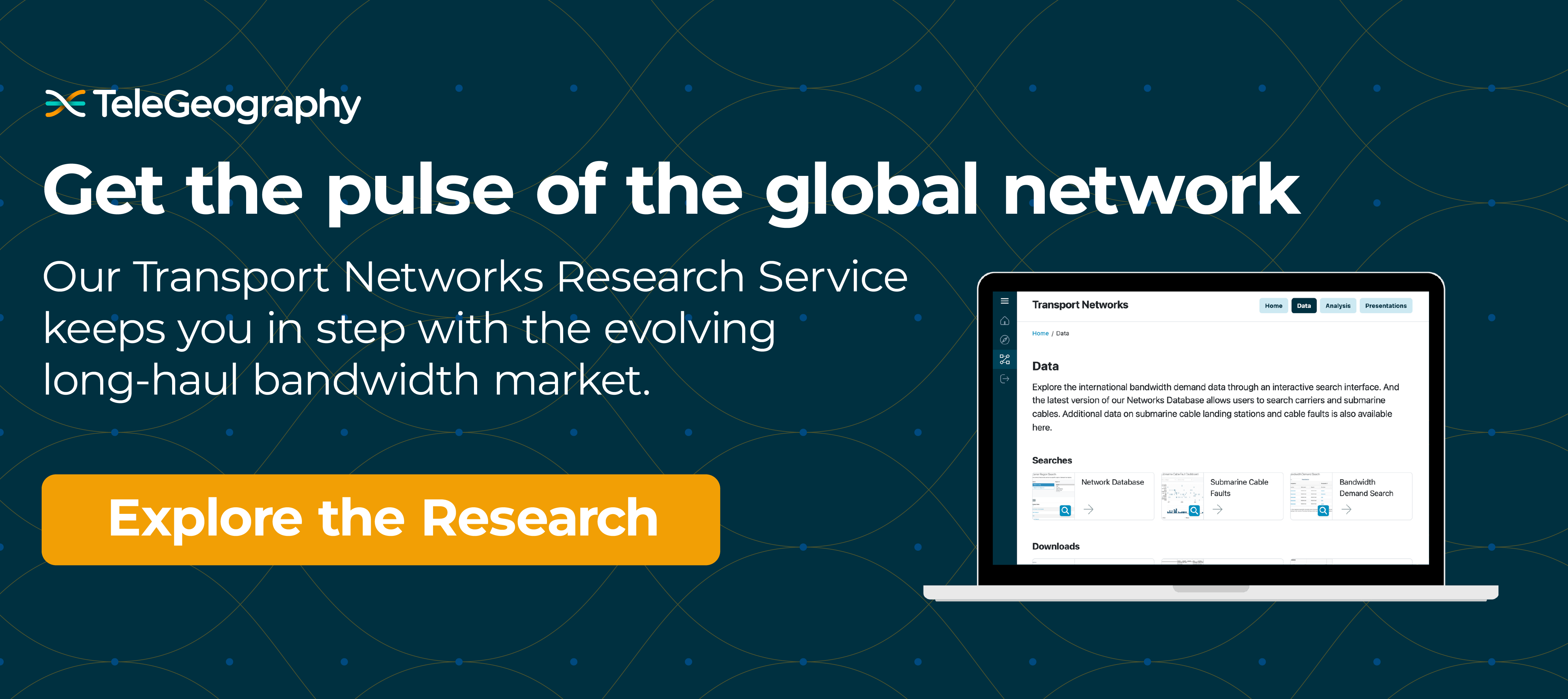Our IP Networks Research Service—which recently underwent its big annual update—includes an analysis that explores how, what, and where internet backbone providers connect.
Keep reading for a sample of our 2024 provider rankings findings, where we compare different metrics to examine which internet providers have the richest set of connections to other companies.
Provider Connectivity
Our rankings of provider connectivity include analysis based on BGP routing tables, which govern how packets are delivered to their destinations across myriad networks as defined by autonomous system numbers (ASNs). Every network must rely on other networks to reach parts of the internet that it does not itself serve; there is no such thing as a ubiquitous internet backbone provider.
If you want a single, simple number to identify the best-connected provider in the world, you may come away disappointed.
There are several ways to measure connectivity, and each highlights different strengths and weaknesses of a provider’s presence.
There are several ways to measure connectivity, and each highlights different strengths and weaknesses of a provider’s presence.
One basic metric is to count the number of unique Autonomous Systems (AS) to which a backbone provider connects, while filtering out internal company connections. The results are presented in the table below.
Number of Connections for Selected Providers
.png?width=750&height=450&name=Copyright_TeleGeography_gig_pro_connections_over_time%20(3).png)
Notes: Data shows the number of connections to other ASNs. The line indicating Lumen’s number of connections reflect Level 3 (parent ASN 3356) rather than Lumen (formerly parent ASN 209) prior to 2018. Source: © 2024 TeleGeography
Hurricane Electric has experienced consistent gains, and now ranks as the clear number one in terms of connections. Cogent has also experienced steady growth.
Lumen and Hurricane Electric swapped the top spot back and forth for several years. Lumen (the rebranded CenturyLink) experienced huge gains a few years ago when the company bought Level3. Since then, the number of ASNs connected to Lumen has stagnated.
In addition to examining overall number of connections, we also use our analysis of BGP routing tables to look at the “reach” (a measure of the number of IP addresses an upstream ASN has been given access to from downstream ASNs) and “share” (which compares an upstream provider’s reach to all other upstream providers of a downstream ASN.)
But that intel is reserved for IP Networks Research Service subscribers.
👉 Download the 2024 Executive Summary to peruse a longer free sample of our latest findings.



